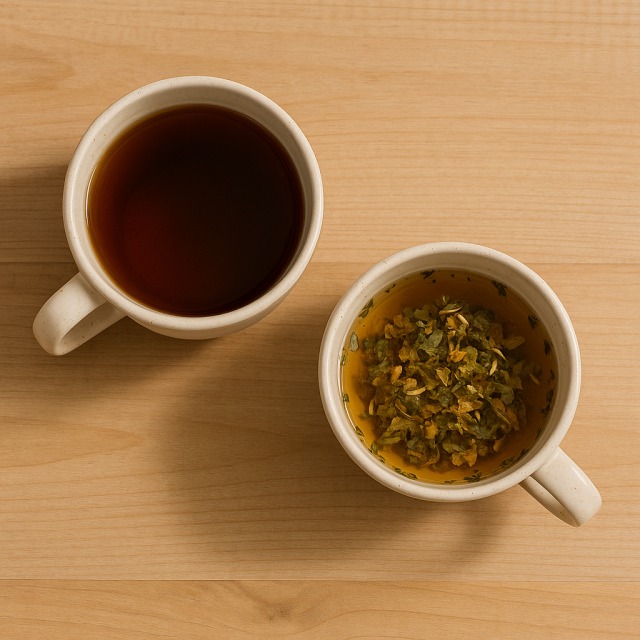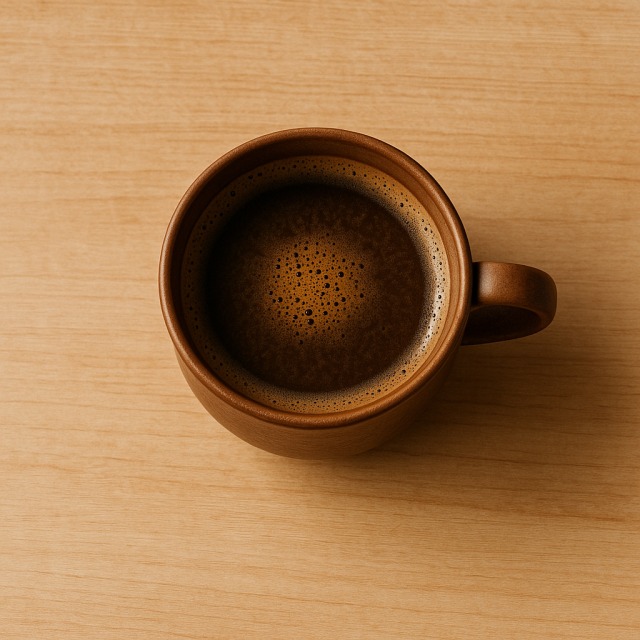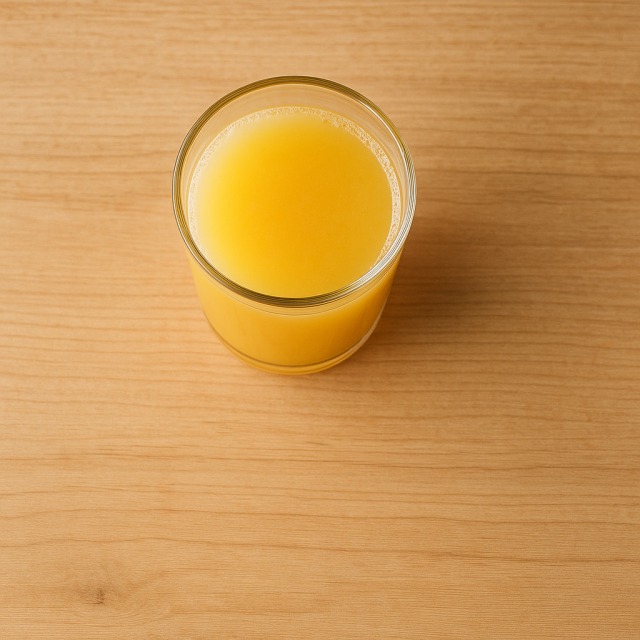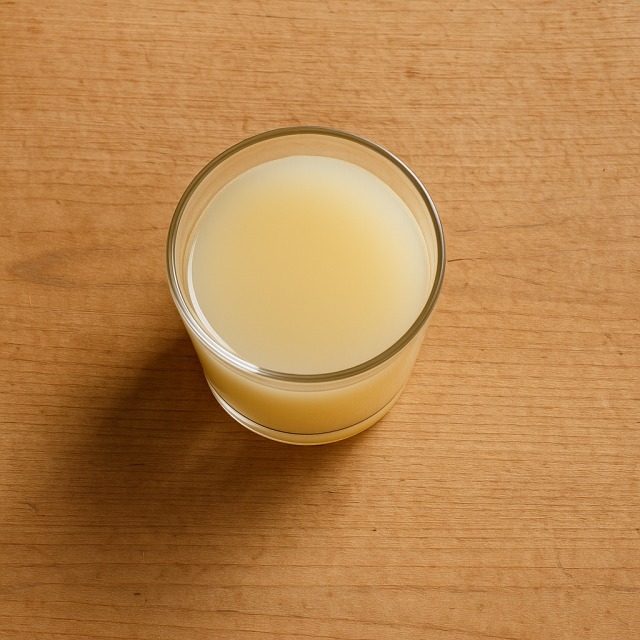Calorie Chart / Beverages / Tea Herbal tea
How Many Calories Are in Tea and herbal tea?
Calculation of the nutritional value & Recommended Dietary Intake of tea and herbal tea
For ml and a calorie requirement of kcal
| Calories 0 kcal | Proteins 0 g | Lipids 0 g | Carbohydrates 0 g |
| 0% | 0% | 0% | 0% |
Health benefits of tea and herbal tea

Tea and herbal tea - 100ml
Calories 0 kcal
Proteins 0 g
Lipids 0 g
Carbohydrates 0 g
Tea and herbal tea are remarkable for their virtually zero-calorie content: they contain no measurable calories per 100 g, so you can enjoy several cups without adding calories to your daily tally. Because many people track calories closely, replacing a sugary drink with tea can save dozens of calories at every snack break.
Although they bring no calories, teas provide valuable micronutrients such as manganese, potassium, and fluoride, plus an array of polyphenols (catechins, theaflavins) known for their antioxidant action. Green tea is also rich in the amino acid L-theanine, reputed to encourage relaxation without drowsiness, while herbal infusions like peppermint or chamomile may soothe digestion—these effects are considered "supposed" rather than medically proven but are widely cited.
Caffeine in true tea can improve alertness, yet its moderate level combined with L-theanine tends to prevent the jittery effect of coffee. Historical records show that tea was used in China more than 4,000 years ago as both a drink and a medicinal decoction; in Europe, it became fashionable in the 17th century precisely because it offered taste with negligible calories compared with alcohol or sweetened drinks. Overall, tea and herbal tea are an ultra-low-calorie choice, ideal for weight control strategies that focus on limiting calories throughout the day.
Tips for incorporating tea and herbal tea into a balanced diet
If your goal is to lower daily calories, replace sodas or juice with a jug of iced green tea lightly flavored with fresh lemon slices: this switch alone can save hundreds of calories. A mid-afternoon cup paired with a small handful of almonds will curb hunger while keeping calories in check and adding healthy fats and proteins.
Tea also fits into savory cooking: brew a strong black tea, cool it, and use it as the liquid base of a marinade for salmon or chicken breast; the tannins tenderize the flesh while introducing no extra calories. Serve the grilled protein with steamed broccoli for a meal that is filling but still modest in calories.
To finish a rich dinner—think hearty dishes such as duck confit or creamy zucchini gratin—opt for a hot peppermint herbal tea rather than dessert. This helps digestion and avoids the extra calories of cake or ice cream. Finally, homemade chai prepared with skimmed milk and minimal honey stays lower in calories than coffeehouse versions yet delivers warmth and spice satisfaction.
Frequently Asked Questions
- How many calories are in tea and herbal tea?
- There are 0 kcal per 100 g, meaning these infusions add no calories to your diet.
- Does adding honey or sugar change the calories?
- Yes. While plain tea contributes no calories, one teaspoon of honey adds roughly 20 kcal, and one teaspoon of sugar about 15 kcal, so be mindful if you are counting calories.
- Is tea a better low-calorie choice than coffee?
- Black coffee is also very low in calories, but many people add milk or cream. Unsweetened tea remains calorie-free and may therefore be the safer zero-calorie option.
- Can herbal tea help reduce overall daily calories?
- Using herbal infusions between meals curbs appetite and replaces higher-calorie drinks, a simple tactic to cut total calories without feeling deprived.
- Which tea variety has the fewest calories?
- All unflavored teas—green, black, oolong, white—contain the same zero calories; what changes calories is any milk, syrup, or sugar you add.
Similar foods
Information provided by Calorie Menu may contain inaccuracies or errors. It cannot, under any circumstances, substitute medical advice or medication.










